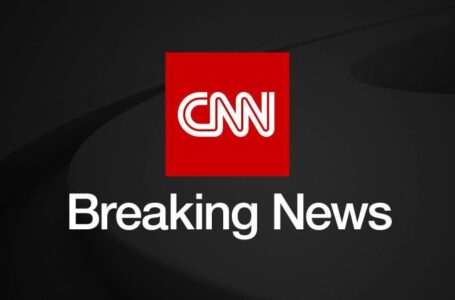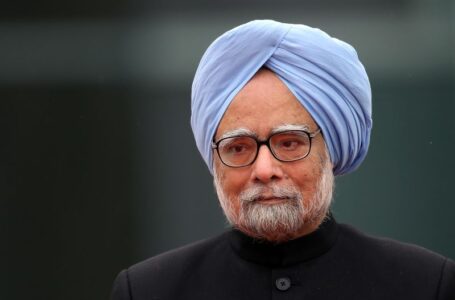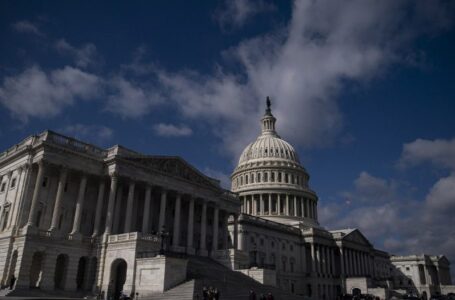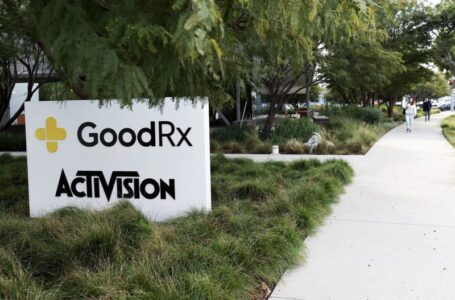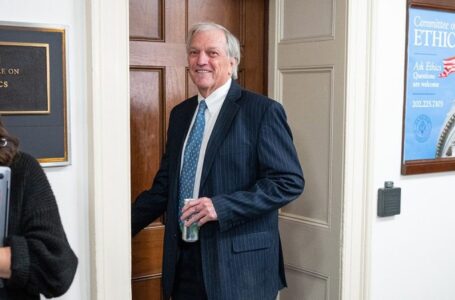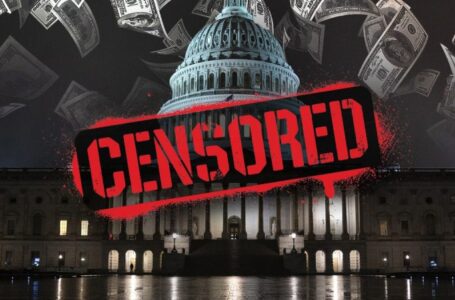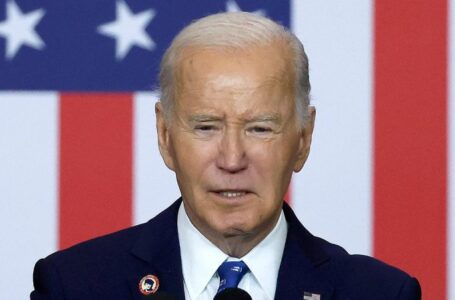Israel’s attorney general orders probe into Netanyahu’s wife on suspicion of witness harassment
Trump hearings in N.Y., Georgia on Thursday as trial schedule comes into focus
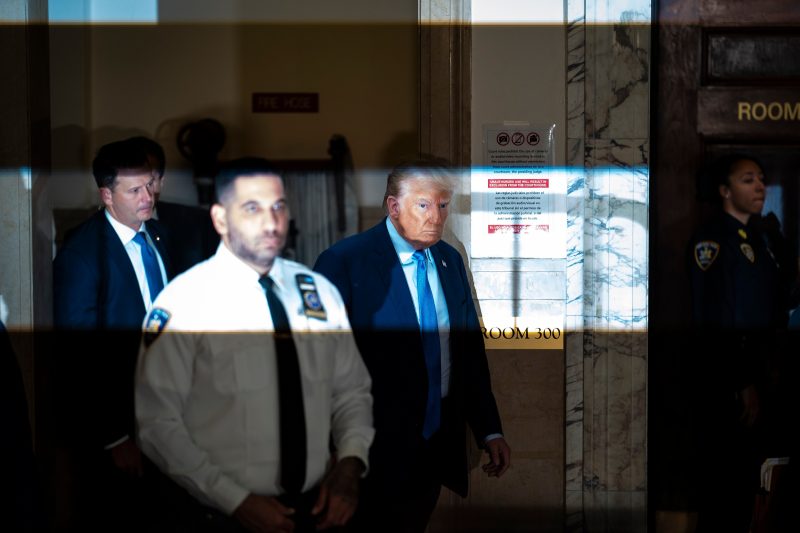

Donald Trump is expected at the defendant’s table in a Manhattan courtroom on Thursday for a conference that could confirm he’ll be tried next month for allegedly falsifying hush money repayment records — the first criminal trial of a former U.S. president.
At the same hour in Atlanta, a team of Trump’s lawyers will appear with some of his co-defendants for a hearing in a separate indictment, in which Trump and others are accused of a vast scheme to overturn Georgia’s 2020 election results. That hearing will focus on alleged misconduct by the prosecutor.
The dual court sessions could help crystallize the timing and viability of two of Trump’s four criminal cases, with additional clarity coming after a hearing in Florida on March 1.
Lawyers for Trump, who is again running for president and is closing in on the Republican nomination, have sought to delay his trials until after the election, emphasizing the impossibility of being in court and on the campaign trail simultaneously.
A remaining wild card in the court schedule is Trump’s federal trial in D.C. for allegedly obstructing the 2020 election results. The case is frozen until the Supreme Court decides if it will settle the question of presidential immunity, after a lower court said former presidents — including Trump — cannot be shielded from prosecution.
If the justices decide quickly to let the D.C. trial proceed, it could be back on track to begin in late May or June, according to legal experts. New York Supreme Court Justice Juan Merchan could then consider delaying his trial date to avoid complicating preparations for the federal D.C. trial, which involves broad national questions of election integrity and disrupting the peaceful transfer of power.
“If the Supreme Court determines not to take the case up, there is a decent chance the D.C. case can get to trial in the late spring — depending on when the Supreme Court denies it,” said Mary McCord, a former federal prosecutor who is now executive director of the Institute for Constitutional Advocacy and Protection at Georgetown Law. “If that’s the case, it is possible that Merchan would not want to start the [New York] trial at the end of March.”
As recently as a few weeks ago, the fate and timing of each of Trump’s criminal trials seemed uncertain.
The judge in the D.C. case had dropped a March 4 trial date from her calendar because of the ongoing immunity appeal.
In Florida, a different federal judge signaled in November that she would probably delay Trump’s May trial for allegedly withholding classified documents and obstructing government efforts to retrieve them.
Prosecutors and defense lawyers have been waiting for the Florida judge to decide what to do ever since — and they will probably get at least some answers at the March 1 hearing.
In New York, proceedings had been largely dark since Trump was arraigned last April, with Merchan seemingly waiting to see the timing of the other trials before he decided whether to move forward with his March 25 date.
And the Georgia state case over election obstruction was in uncharted waters, with defense lawyers trying to disqualify the prosecution team — or dismiss the whole case — over an alleged improper romantic relationship between Fulton County District Attorney Fani T. Willis (D) and her top deputy in the case.
Thursday’s hearing in Georgia will address those issues.
On the docket at 9:30 a.m. in Manhattan is the case some legal analysts have dismissed as the “runt” of Trump’s four criminal indictments. The former president faces 34 felony counts of falsifying business records in connection to an alleged hush money payment to adult-film star Stormy Daniels during his 2016 campaign.
Trump is accused of illegally classifying his reimbursements to his former lawyer and fixer, Michael Cohen, who made the hush money payment, as a business expense instead of a campaign expense. He has pleaded not guilty to all the charges.
In addition to confirming a trial date, Merchan is scheduled to rule on Trump’s long-shot request to dismiss the case for various reasons. Among them: allegations that there is insufficient proof of wrongdoing and that the case is motivated by a misuse of prosecutorial authority.
In a lengthy September filing, Trump’s lawyers said the five-year investigation by the Manhattan district attorney’s office resulted in “a discombobulated package of politically motivated charges marred by legal defects, procedural failures, discovery violations, and a stubborn refusal to provide meaningful particulars regarding its theory of the case.”
Lawyers for the trial team of Manhattan District Attorney Alvin Bragg (D), in turn, argued that Trump intended to commit multiple crimes as he tried to circumvent campaign finance disclosure laws by classifying the reimbursements as legal expenses, providing a solid basis for a felony indictment.
Trump is expected to attend the hearing in Manhattan on Thursday along with his defense team, offering a preview of how the busy courthouse will fare during his trial, when a crush of news reporters interrupts normal routines for lawyers, defendants and court staff there on other business.
At the same time, other Trump lawyers will be in Georgia, where the former president and 14 remaining co-defendants face charges in a sprawling election interference case that includes accusations of conspiring to forge statements and documents. Four other co-defendants have pleaded guilty. Trump has denied wrongdoing.
The hearing is focused on accusations from one of Trump’s remaining co-defendants, former campaign aide Mike Roman. He has alleged that Willis and lead investigator Nathan Wade engaged in a personal relationship from which Willis benefited financially after she hired him.
Roman’s lawyer, Ashleigh Merchant, claimed Willis may have broken the law by hiring Wade and then allowing him to pay for “vacations across the world” with her that were unrelated to their work on the case. Her motion to disqualify Willis and her office was later joined by Trump and several other co-defendants, including former Georgia GOP chairman David Shafer, Atlanta-area attorney Bob Cheeley, former Justice Department official Jeffrey Clark and Cathleen Latham, a 2020 Trump elector.
Fulton County Superior Court Judge Scott McAfee has said the primary matters to be addressed in Thursday’s hearing are whether Willis benefited financially from hiring Wade, when the relationship started and whether it is ongoing. Wade has said the relationship started after Willis hired him, but Merchant said she has a witness — Wade’s former law partner and former divorce attorney — who will dispute that.
The Georgia case does not yet have a trial date.
Two weeks from Friday, on March 1, Trump’s lawyers will meet federal prosecutors for a separate scheduling hearing in Florida with Judge Aileen M. Cannon. The classified documents trial had been scheduled to begin in late May, but Trump’s attorneys have told Cannon that they need more time to prepare.
The proceedings are particularly complicated because they involve sensitive documents, the handling of which at trial must adhere to the Classified Information Procedures Act (CIPA) — regulations that often slow down court proceedings.
Cannon indicated in November that she was open to delaying the trial, acknowledging the time-consuming evidence requirements and the reality that Trump was facing a complex schedule with four separate criminal cases.
With the presidential campaign in full swing, some political observers have decried any delay in the trials, saying voters have the right to know before the election whether Trump has been convicted of wrongdoing, or exonerated. But legal analysts say delays are not uncommon when classified documents are in the mix.
“As a general matter, the various stages of the CIPA can insert some uncertainty into the trial schedule,” former federal prosecutor David Aaron said.

